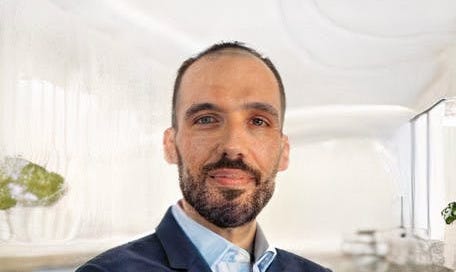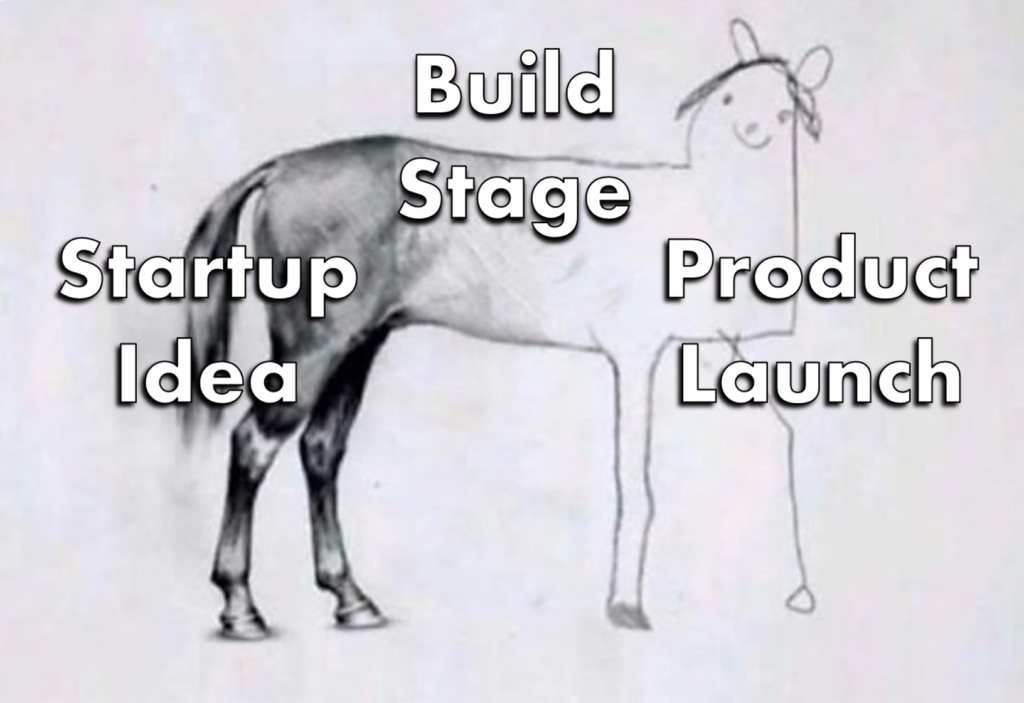Behind shortlistd.io - left VP job, burned money on first MVP and failed forward - Adil's story has it all
Hello everyone! The “Start oops & ups of Dubai” community has grown and that was a signal for me to start meeting with amazing leaders and sharing their stories with you.
The first one is with Adil Gwiazdowski. After having a successful career in Dubai, Adil decided to go to the unknown and launched shortlistd.io in 2023.
Let’s jump on this crazy ride!
Adil, could you introduce shortlistd.io, what's the mission, what's the product?
Our mission is to reshape technology hiring by leveraging the community to source and vet tech talent and match top talent it with companies, using AI. Tech hiring is hugely complex and companies on average receive 250 job applications for a job to make one offer. And then on the other side, tech talent can apply to 200 jobs to have an offer.
And it's crazy to me that you have some companies that take candidates who do sometimes 5 rounds of interviews, including technical interviews, invest a huge amount of time and then at the end, do a referral check. So, we are turning the tech hiring on its head. We are doing the referral first. And I don't think that's been done somewhere else.
There is no search. You don't search. You put your details, and let AI do the job, find the best match. You're not going to get hundreds candidates on shortlistd, you might get two or three. But out of those two or three, you do hire one.
Why did you decide to start shortlistd.io first in the Middle East?
There are two reasons:
First is the huge market potential. There's about 600 million to 1 billion people in the Middle East and North Africa. And there is a very high adoption of technology in this region. You have more people now that are studying computer sciences in places like Jordan or Egypt, than you might have in some places in Europe. So what we are hoping is to target this region first and tap into the talent pool.
Secondly, it's an undiscovered talent pool. The Middle East is not like Africa or the Asian continent or even South America when it comes to tech hiring. All these regions have been tapped by other tech platforms. The Middle East hasn't, yet.
So, tell us, how it all started?
I left my company last year in 2022. And at the time, actually, I wanted to do an AI-matching platform that was vertical and community-based. I went into a marketplace and I connected with a developer. And the developer was great. I mean he did such an amazing demo. I was blown away and then it came to delivery...oh boy... I never saw the finished product nor my money. I can estimate I lost tens of thousands dollars by this mistake. This was a big oops for me.
I lost a lot and the project was delayed by months. I was really frustrated and disappointed by myself because I trusted someone that on paper looked good and but he didn't come with any credentials.
And that inspired me to then say, well, hold on. That's missing.
What came next? How did you build the product?
After that really bad experience, my due diligence went a lot deeper than just having a call. So what I did was basically searching for a team that did hiring and AI projects before. But my requirements were a bit more complex, the whole element of referrals came in. It's not just a matching, and it's invite only.
I’m not sure where you're at right now with number of sign ups and placements - how did you get your first ones?
So in terms of numbers, we've got about 150 registered talents. About 35 tech leaders who refer and about 7-8 clients, but not all of them are actively hiring. I'm primally using my business network for acquisition.
Fail at the beginning was that I was targeting influencers as referees. I wanted to create an influencer-led platform. People with big reach on YouTube, having tech channels. But they are so busy, already having a full business ecosystem and so they really didn't see the value of doing anything else with me.
So it was another fail that brought me to a new idea when a CTO approached me they're having another round of lay offs and saying goodbye to people he trusts and personally hired - I tried to help and of course, with recommendation from a trusted CTO, the candidates had better chances.
And so that's when I kind of scrapped the initial plan. And that's when I started to talk to more leaders, CTOs, CPOs, Engineering Managers etc.
What are the key metrics you're looking at 1 month after the launch?
Our north star metric is successful placements. Everything else we do means nothing if we’re not able to match people into jobs. Everything else is nice, but it's useless.
We've connected six talents to jobs since January when we started private beta. It doesn't sound like much, but we're getting better every month.
It's also about how many jobs are on the platform, number of interviews, time to hire. We track all of that.
My tech stack is huge, but fully automated. I'm using things like Hotjar to measure user interaction, Crisp for customer engagement, Clearbit to track the website. I'm also using a lot of kind of sales tools, Pipedrive as a CRM which is very good. Tolstoy and Loom. So, a lot of data to look at.
Did you make any changes on the platform/web since the launch?
Of course, several tweaks on the web, especially about the referral model.
But there's one thing I'm looking into now more deeply. We dedicated the platform to be for tech hiring only. What we didn't do is account for all these tech companies that might have non-tech roles. And these are being hired a lot right now.
So there's a question mark right about what do we do about those?
In general, taking customer feedback into consideration is a skill. Sometimes it's hard. But it's what makes you improve.
Like someone was surprised we don't have any testemonials on our website - well now we do, with Trustpilot and fully automated. Always listen to users.
You weren’t a born entrepreneur, you were building your corporate career for a long time, mainly here in Dubai. What made you switch that with burning your savings for this idea?
So first of all, I'd like to say that entrepreneurship didn't come easily to me. Even though my family was full of entrepreneurs. Both father and grand-father were entrepreneurs, and they did very well for a very long time but then it failed. So I've seen first hand how entrepreneurship can have disastrous effects.
I was a VP at a large company. We had about 500 employees, we were doing well. But you know it, the higher in the corporate ladder you are, the bigger the stake but also the bigger the games. So in 2022, I resigned.
After that, I did consulting for 6 months, helping other founders with strategy and operations. And later I was like, those guys are doing it. And I'm advising them. So, you know, maybe I can do it too?
Starting a company felt like a step down for me. I had a good job and suddenly, I'm no one. Even people I used to deal with, signed contracts with, are now like "Why should I talk to you?"
When you start a business, it feels a lot like a demotion and you're going through a lot of pain. I have to disconnect every now and then, go for a walk and remember that I'm starting small but making incremental progress.
But the biggest part for me was saying no to a monthly salary. That was very hard. The first few months were extremely tough. But now, I've not been paid for 15 months. I don't care anymore. That mind switch of moving away from the office job was the hardest part.
Being 15 months without pay in Dubai, with a family, isn't very sustainable - how did you solve it?
In September 2022, when I stopped my consulting, I spoke to my wife and kids. We had a very open discussion about what to do next. Either I go back to work, or we're going to have a little adventure.
It was hard for us because we had lived in Dubai for 12 years. And both our daughters were born in Dubai. Our friends, our social life, everything. But we decided to take the adventure.
We travelled a bit and finally settling in Koh Samui, Thailand. Life is about 60% cheaper than in Dubai. So by moving there, I'm not being in a survival mode.
Also, I didn't found the company in a Dubai freezone, but rather in Delaware, US - this gives me more flexibility and it lowered the cost ($5k-$10k vs $500).
What would you recommend to starting founders?
Start small, think big, act fast.
It took me about 7 months to get the MVP out. 3 months was my unsuccessful first attempt and the product you can see now took 4 months.
The other would be solve a problem you believe in.
Not just any problem. You have to have the conviction to keep going and for that, you have to believe in the problem. I've been in the dark side. For the last eight months, I'm alone at my desk every day, mostly getting rejections, from talents, leaders, getting rejections from anyone that, doesn't think that this is a good idea.
You have to believe in your idea. Something you can hold on in the tough times.
The last is timing.
If I had launched last year, we'd be doing better. When you have an idea and you know you're solving the right problem, do it now. The tech market totally changed. Last year, I had leaders of the top tech companies on board, loving the idea. Now? Tech hiring is not a priority anymore. So the growth is slower.
Are you looking into funding or do you want to continue bootstrapping and keeping shortlistd your own?
I'm not currently looking at VC or any other type of funding at the moment.
Having said that, I'll be open to using seed round in the future, if and only the growth of the platform would require it. A sudden growth and opportunity on the market we wouldn't be able to cover from our resources. We're growing very sustainably now.
I'm alone at the moment, with very low overhead cost.
Also, it's never free money. There are KPIs to deliver. Things you have to give away. And in the end, you end up working for someone else, again.
I will be hypocrite to tell you that, you know, I don't care about the money. I've seen my wealth decline, but it's not just about the money. It's about what I believe in, it's about what I want to build, it's about my legacy, it's about what I want.
Adil, thank you for being the first founder talking about your oops & ups in this newsletter.






